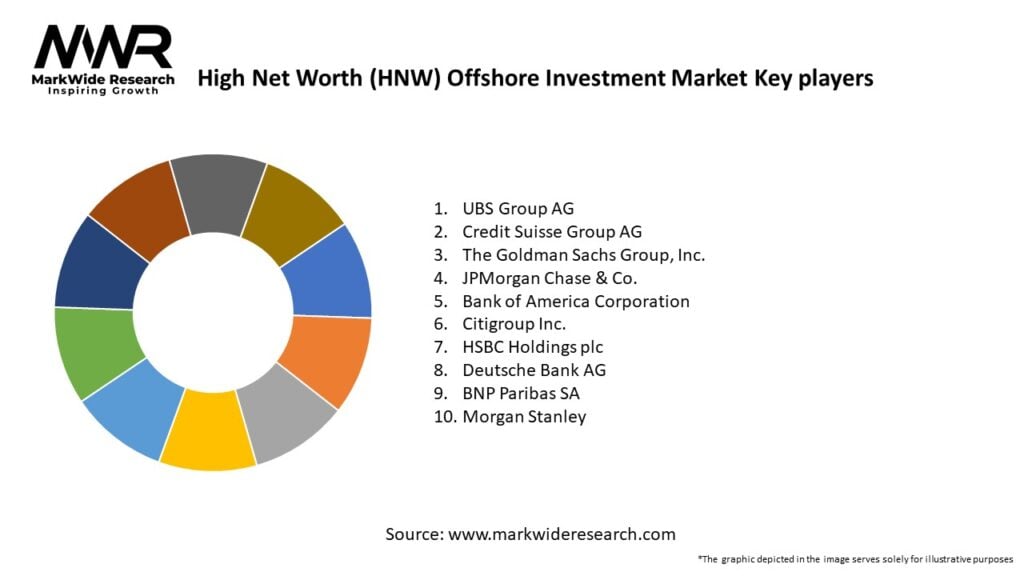Everything About Offshore Investment: Insights Into Its Factors To Consider and advantages
Offshore investment has ended up being a progressively relevant subject for individuals seeking to diversify their profiles and improve financial security. As we discover the subtleties of offshore investment, it comes to be apparent that educated decision-making is crucial for optimizing its prospective benefits while mitigating inherent threats.
Recognizing Offshore Financial Investment
In the realm of worldwide financing, understanding offshore investment is critical for entities and people seeking to optimize their monetary portfolios. Offshore financial investment describes the placement of assets in banks outside one's nation of house. This technique is typically made use of to accomplish different financial goals, including diversity, asset protection, and prospective tax benefits.
Offshore financial investments can encompass a broad array of monetary instruments, including stocks, bonds, shared funds, and real estate. Financiers may choose to develop accounts in jurisdictions known for their positive regulatory environments, personal privacy legislations, and economic stability.
It is vital to recognize that overseas investment is not inherently associated with tax evasion or illegal tasks; rather, it offers genuine objectives for lots of financiers. The motivations for participating in offshore financial investment can vary widely-- from looking for greater returns in established markets to safeguarding possessions from financial or political instability in one's home nation.

Nonetheless, potential capitalists should also be aware of the intricacies involved, such as compliance with international policies, the requirement of due diligence, and comprehending the legal implications of offshore accounts. On the whole, a comprehensive understanding of overseas financial investment is essential for making informed monetary decisions.
Secret Advantages of Offshore Financial Investment
Offshore investment provides several essential advantages that can boost a financier's economic strategy. One significant benefit is the possibility for tax optimization. Numerous overseas jurisdictions supply positive tax obligation programs, permitting financiers to lessen their tax obligations lawfully. This can dramatically raise overall rois.
Additionally, offshore investments commonly give access to a more comprehensive series of investment chances. Investors can expand their profiles with possessions that may not be conveniently offered in their home nations, consisting of international stocks, property, and specialized funds. This diversity can minimize danger and improve returns.

Additionally, overseas investments can assist in estate planning. They allow capitalists to structure their possessions in a manner that reduces estate taxes and guarantees a smoother transfer of wealth to successors.
Typical Dangers and Obstacles
Purchasing overseas markets can offer numerous risks and difficulties that need cautious consideration. One substantial threat is market volatility, as offshore investments may be subject to changes that can influence returns significantly. Capitalists need to additionally know geopolitical instability, which can interfere with markets and impact investment performance.
Another challenge is currency threat. Offshore financial investments typically involve purchases in foreign currencies, and undesirable exchange price movements can erode earnings or increase losses. Offshore Investment. In addition, minimal access to reliable information about overseas markets can prevent enlightened decision-making, resulting in prospective missteps
Lack of regulative oversight in some offshore jurisdictions can also pose threats. Financiers may locate themselves in settings where financier protection is marginal, increasing the danger of scams or mismanagement. Varying economic methods and social attitudes towards financial investment can make complex the financial investment process.
Regulatory and lawful Factors to consider
While browsing the complexities of offshore financial investments, recognizing the legal and regulative landscape is important for guaranteeing and securing assets compliance. Offshore investments are frequently subject to a wide range of regulations more and laws, both in the financier's home nation and the jurisdiction where the investment is made. It is vital to carry out complete due diligence to understand the tax implications, reporting needs, and any type of lawful commitments that may arise.
Regulatory frameworks can differ considerably in between jurisdictions, influencing whatever from taxes to capital requirements for foreign financiers. Some countries may supply favorable tax obligation programs, while others impose stringent guidelines that might hinder financial investment. Additionally, global agreements, such as FATCA (Foreign Account Tax Obligation Compliance Act), might obligate capitalists to report offshore holdings, boosting the need for transparency.
Investors have to likewise be mindful of anti-money laundering (AML) and know-your-customer (KYC) policies, which call for economic institutions to confirm the identification of their customers. Non-compliance can lead to severe penalties, including penalties and constraints on financial investment activities. Involving with legal professionals specializing in global financial investment law is vital to navigate this complex landscape properly.
Making Enlightened Decisions
A critical strategy is crucial for making informed choices in the world of overseas investments. Understanding the intricacies involved needs detailed research and analysis of different aspects, including market patterns, tax obligation effects, and lawful structures. Capitalists need to evaluate their threat resistance and financial investment goals, making sure positioning with the distinct characteristics of offshore possibilities.
Inspecting the regulatory setting in the selected jurisdiction is vital, as it can substantially affect the security and productivity of investments. Furthermore, remaining abreast of geopolitical growths and economic problems can provide valuable insights that inform financial investment strategies.
Involving with professionals who concentrate on offshore investments can also boost decision-making. Offshore Investment. Their competence can direct capitalists through the intricacies of global markets, aiding to determine rewarding opportunities and possible pitfalls
Eventually, educated decision-making in offshore financial investments rests on a well-rounded understanding important link of the landscape, a clear articulation of private goals, and a dedication to continuous education and learning and adjustment in a dynamic worldwide environment.
Conclusion
To conclude, offshore financial investment offers considerable advantages such as tax optimization, property defense, and accessibility to global markets. It is vital to recognize the associated risks, including market volatility and regulatory obstacles. A complete understanding of the legal landscape and persistent study is essential for successful navigation of this facility field. By resolving these considerations, capitalists can efficiently website link harness the advantages of offshore financial investments while mitigating potential downsides, eventually causing informed and strategic monetary decisions.
Offshore financial investment offers several vital benefits that can improve an investor's financial approach.Additionally, overseas investments typically provide accessibility to a broader array of investment possibilities. Differing financial techniques and social mindsets towards investment can make complex the investment procedure.
